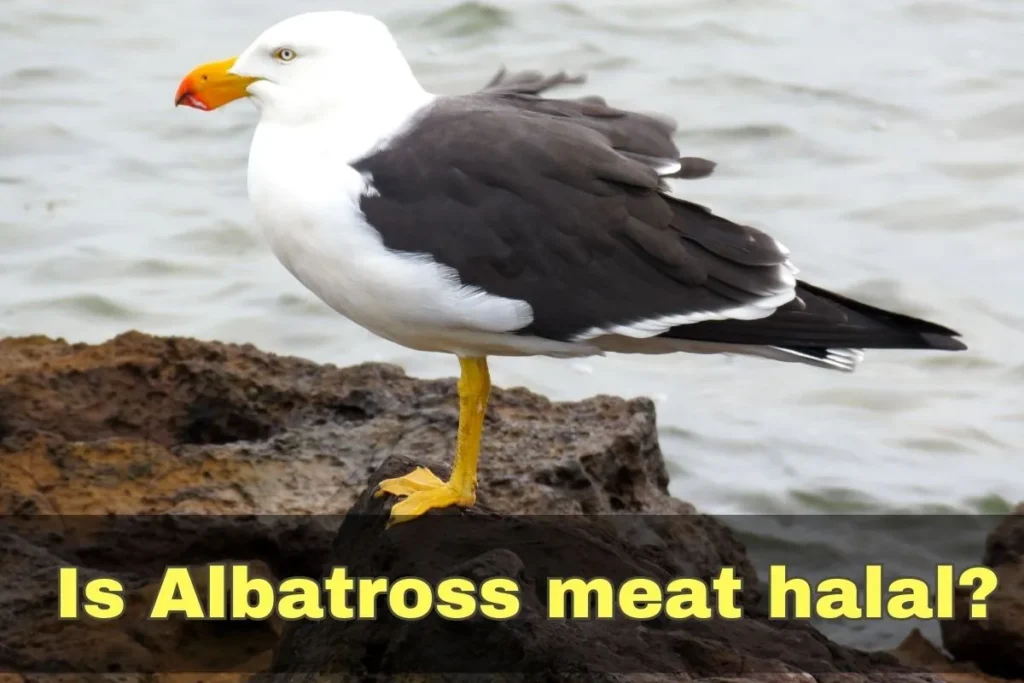Do you follow Islam and wonder about the permissibility of eating halibut? Look no further than our insightful guide to answering your query once and for all! Our exhaustive analysis touches upon religious texts and legal perspectives pertaining to fish consumption, with a particular emphasis on the halibut.
You’ll gain valuable insights into the Islamic perspective regarding halal food items. If you yearn for clarity or simply desire to expand your knowledge of Muslim dietary rules, embark on this journey with us as we tackle the question: is halibut halal?
Key Takeaways
| 📌Halibut is Halal: Yes, Muslims can eat halibut fish according to Islamic rules. |
| 📌 Islamic Guidelines: In Islam, most things are allowed unless the Quran or Hadith says they’re not. Halibut is not forbidden, so it’s considered halal. |
| 📌 Check Ingredients: When cooking halibut, make sure the seasonings and ingredients used are also allowed in Islam. If they contain forbidden things, then the dish might not be considered halal. |
About Halibut
Halibut, a member of the flatfish family known as Pleuronectidae, shares its kinship with several sibling flatfish species such as flounders, soles, and places. Among these close relatives, turbot ranks among the most similar in appearance compared to halibut – both have elongated bodies with eyes located on top of the head, rather than on either side.
Halibut stands tall among the most iconic species of the Flat Fish genus, boasting a rich cultural significance extending back centuries past. Native Alaskan cultures traditionally rely heavily on subsistence hunting and fishing during Arctic winter months, meaning catching and eating fresh halibut represents vital sustenance year after year.
Outside the realm of flatfish, bass share a different taxonomy altogether but nonetheless enjoy widespread popularity. Despite being part of an order known for having spiny fins, their table qualities match those of many other demersal flatfish.
Both halibut and bass offer flavorful fillets with relatively low oil content that allow for easier digestion compared to higher-fat contents encountered in many varieties of salmon or tuna species.
Determining Halal or Haram
According to Islamic jurisprudence, the presumption of permissibility applies to various products or actions unless they meet specific conditions outlined within Qur’an verses or reliable Hadiths attributed directly to Prophet Muhammad ﷺ (peace be upon him).
Therefore, any item or behavior would be classified as “halal” unless decisive evidence suggests otherwise. This ruling underlines the importance of seeking accurate guidance from credentialed scholars, well-versed Muslim authorities, or halal guidance before making decisions related to daily life.
يَـٰٓأَيُّهَا ٱلنَّاسُ كُلُوا۟ مِمَّا فِى ٱلْأَرْضِ حَلَـٰلًۭا طَيِّبًۭا وَلَا تَتَّبِعُوا۟ خُطُوَٰتِ ٱلشَّيْطَـٰنِ ۚ إِنَّهُۥ لَكُمْ عَدُوٌّۭ مُّبِينٌ
“O humanity! Eat from what is lawful and good on the earth and do not follow Satan’s footsteps. He is truly your sworn enemy.”
To establish guidelines for appropriate sustenance based on Islamic dietary regulations, consultation of two core chapters from the Holy Book Quran, namely Al Baqara and Al Maeda, serves as a foundation. By doing so, it is possible to discern what foodstuffs or liquids should be avoided due to categorization as “Haram.”
وَأَنفِقُواْ فِي سَبِيلِ ٱللَّهِ وَلَا تُلۡقُواْ بِأَيۡدِيكُمۡ إِلَى ٱلتَّهۡلُكَةِ وَأَحۡسِنُوٓاْۚ إِنَّ ٱللَّهَ يُحِبُّ ٱلۡمُحۡسِنِينَ
“And spend of your substance in the cause of Allah, and make not your own hands contribute to (your) destruction; but do good; for Allah loves those who do good.
A crucial element emphasized in this sacred verse focuses on self-preservation and safeguarding others by avoiding substances that pose a potential danger or detriment to our well-being.
Specific types of animal meats fall under the category of being haram (unlawful/prohibited) in accordance with this verse. Such food consists of spoiled, rotten cuts, malodorous sections, pork, dead bodies partially consumed by other creatures, and anything containing blood in their composition.
حُرِّمَتْ عَلَيْكُمُ ٱلْمَيْتَةُ وَٱلدَّمُ وَلَحْمُ ٱلْخِنزِيرِ وَمَآ أُهِلَّ لِغَيْرِ ٱللَّهِ بِهِۦ وَٱلْمُنْخَنِقَةُ وَٱلْمَوْقُوذَةُ وَٱلْمُتَرَدِّيَةُ وَٱلنَّطِيحَةُ وَمَآ أَكَلَ ٱلسَّبُعُ إِلَّا مَا ذَكَّيْتُمْ وَمَا ذُبِحَ عَلَى ٱلنُّصُبِ
“Forbidden to you are carrion, blood, and swine; what is slaughtered in the name of any other than Allah; what is killed by strangling, beating, a fall, or by being gored to death; what is partly eaten by a predator unless you slaughter it; and what is sacrificed on altars.“
Although a few forms of flesh from animals are typically prohibited from consumption within Islam, notably carrions that have started decomposing or carnage devoured even partly by scavenger creatures, there exists an exemption for two sorts: locusts and fish. As indicated by narratives of Prophet Muhammad ﷺ (peace be upon him) :
It was narrated from ‘Abdullah bin ‘Umar that the Messenger of Allah (ﷺ) said:
“Two kinds of dead meat and two kinds of blood have been permitted to us. The two kinds of dead meat are fish and locusts, and the two kinds of blood are the liver and spleen.”
Additionally, Prophet Muhammad ﷺ (peace be upon him) went on to specify which types of creature flesh are impermissible to eat, hence classifying them under the category of Haram.
كُلُّ ذِي نَابٍ مِنَ السِّبَاعِ فَأَكْلُهُ حَرَامٌ
Narrated Abu Hurairah that the Prophet Muhammad ﷺ (peace be upon Him) said :
“Every beast with fangs is forbidden to eat”
عَنِ ابْنِ عَبَّاسٍ قَالَ نَهَىرَسُولُ اللَّهِ -صلى الله عليه وسلم- عَنْ كُلِّ ذِى نَابٍ مِنَ السِّبَاعِوَعَنْ كُلِّ ذِى مِخْلَبٍ مِنَ الطَّيْرِ
“From Ibnu Abbas said: “The Messenger of Allah, may God bless him and grant him peace, forbade from every wild animal that has sharp teeth and claws (predators)”
Is Halibut Halal?
Based on the guidelines set forth by Islamic law above, consuming fish including halibut procured from saltwater or freshwater environments is halal (permissible).
Find out more: Is carp fish halal?
Final Thought
In summary, according to Islamic laws, halibut sourced from both seawater and freshwater habitats can be eaten if particular requirements are met. These involve the application of Halal-compliant flavorings, complete exclusion of undesirable elements in food additives, and assurances that the product has never come into contact with any Haram components at any stage of production, preparation, or delivery.
Wallahu A’lam (Allah knows best)
FAQ
Is halibut freshwater or saltwater?
Pacific halibut is a saltwater fish native to the North Pacific Ocean. They can grow up to eight feet long and five feet wide and feed on smaller crustaceans and mollusks on the ocean floor. Despite its large size, it takes several years to sexually mature and can live beyond two decades under ideal conditions. Its massive size earned it nicknames like “barn door” and “whiting.”
What is so special about halibut?
Halibut has numerous potential health benefits, particularly when high in omega-3 fats, such as fighting heart disease and improving brain function. Recent studies show that people who eat Mediterranean diets with plenty of fish experience fewer heart problems than those who don’t consume much fish; another report connects eating copious amounts of fish to improved brain functions, possibly extending its protective attributes beyond just physical benefits.
Where can I buy halibut fish online?
You can buy halibut online from websites such as Pure Food Fish Market, Tanner’s Alaskan Seafood, and Wild Alaska Salmon & Seafood. These websites offer a variety of options for buying halibut, including fillets, steaks, and whole fish.
- Is Pop Tarts Halal? What You Need to Know - February 18, 2024
- Are Graham Crackers Halal in Islam? - January 19, 2024
- Is Keebler Wheatables Halal? - January 18, 2024





